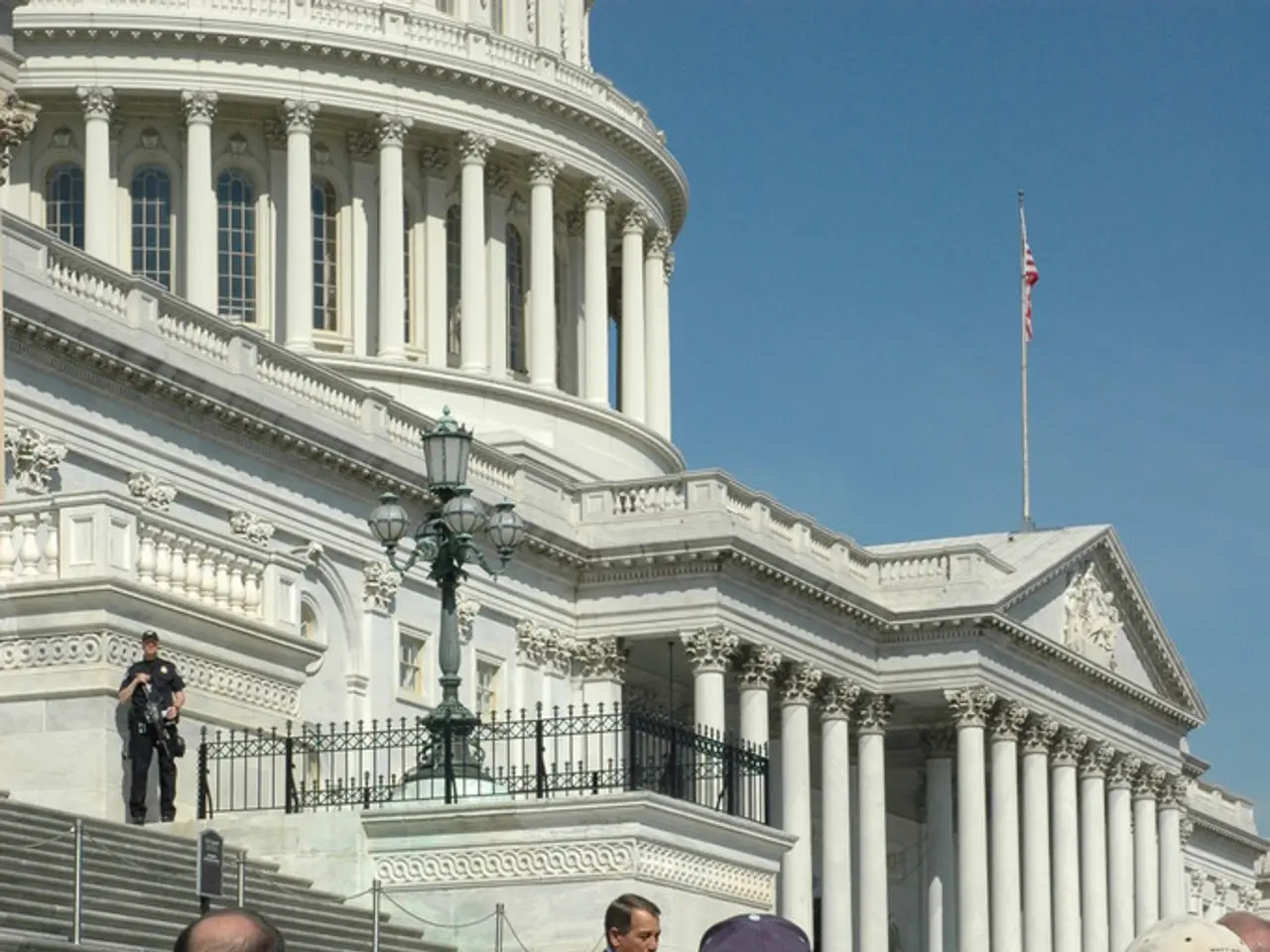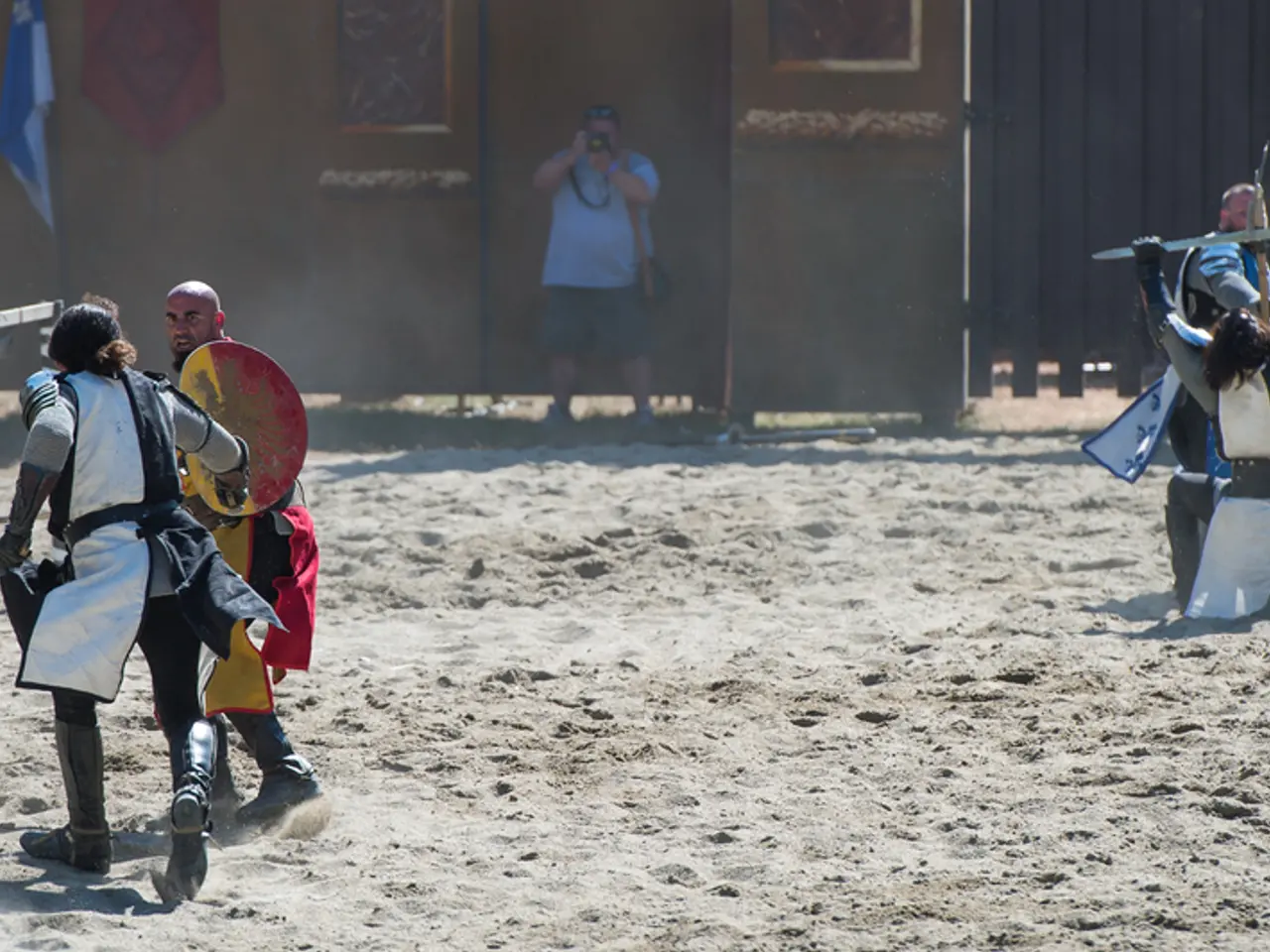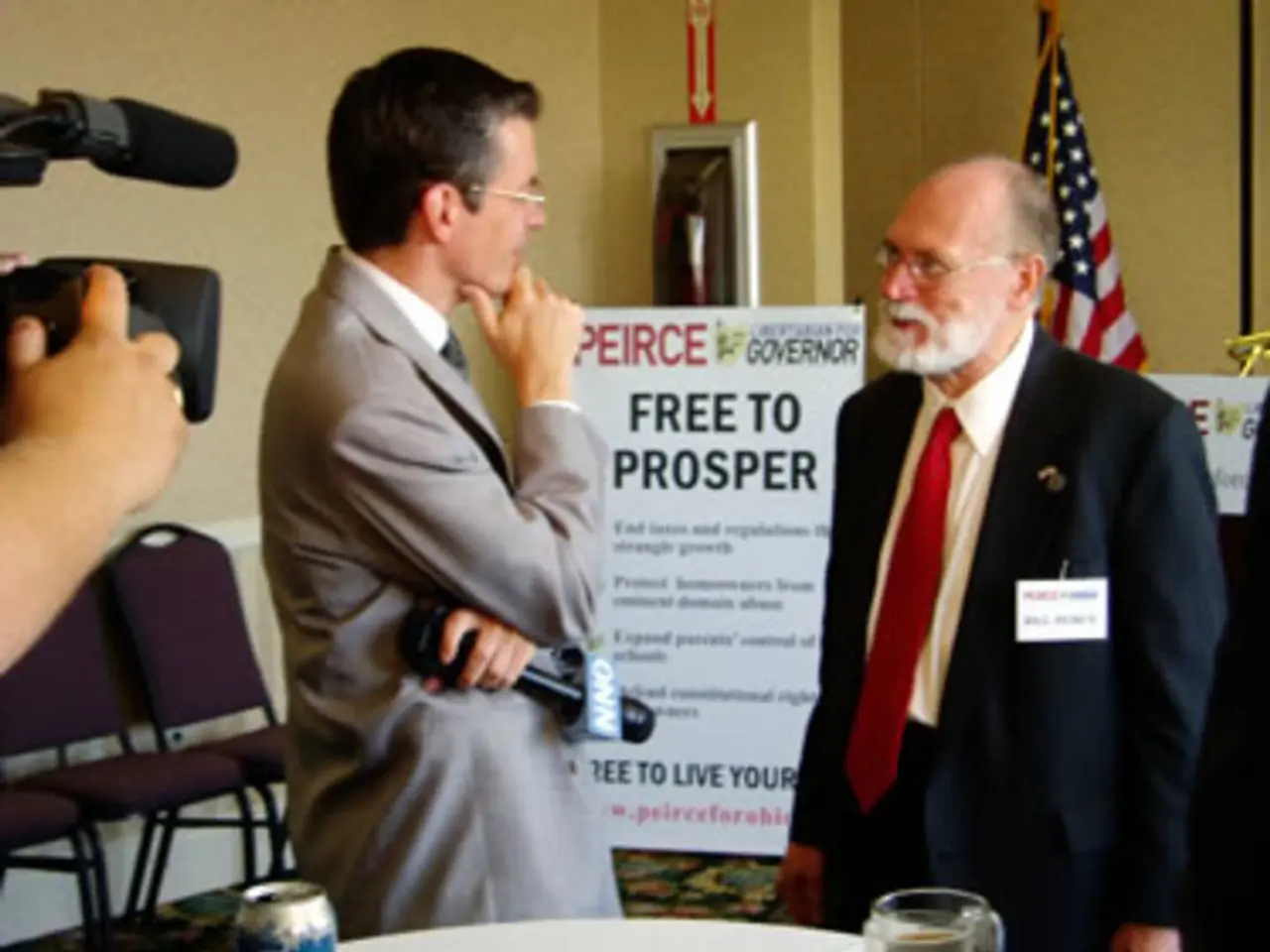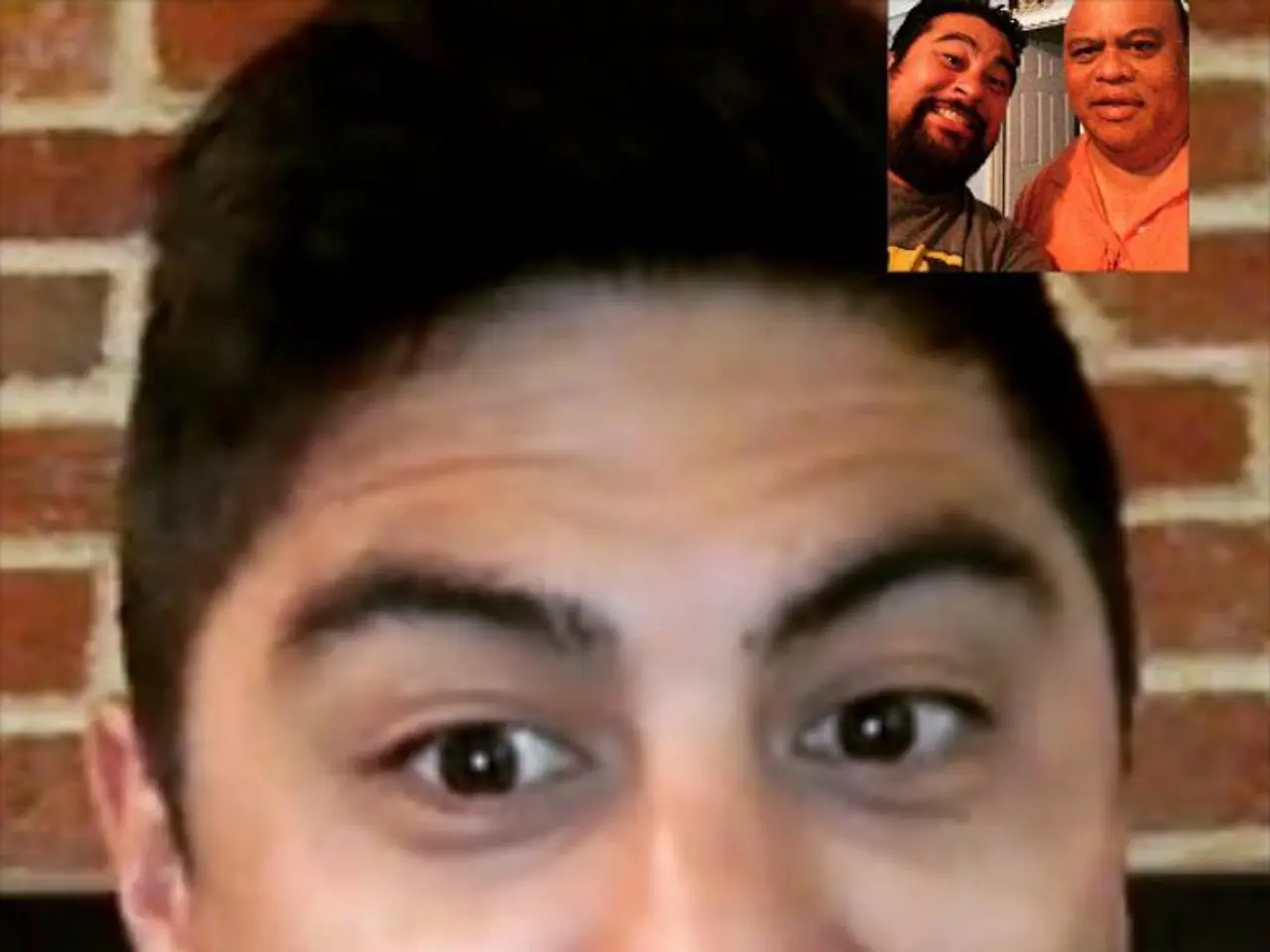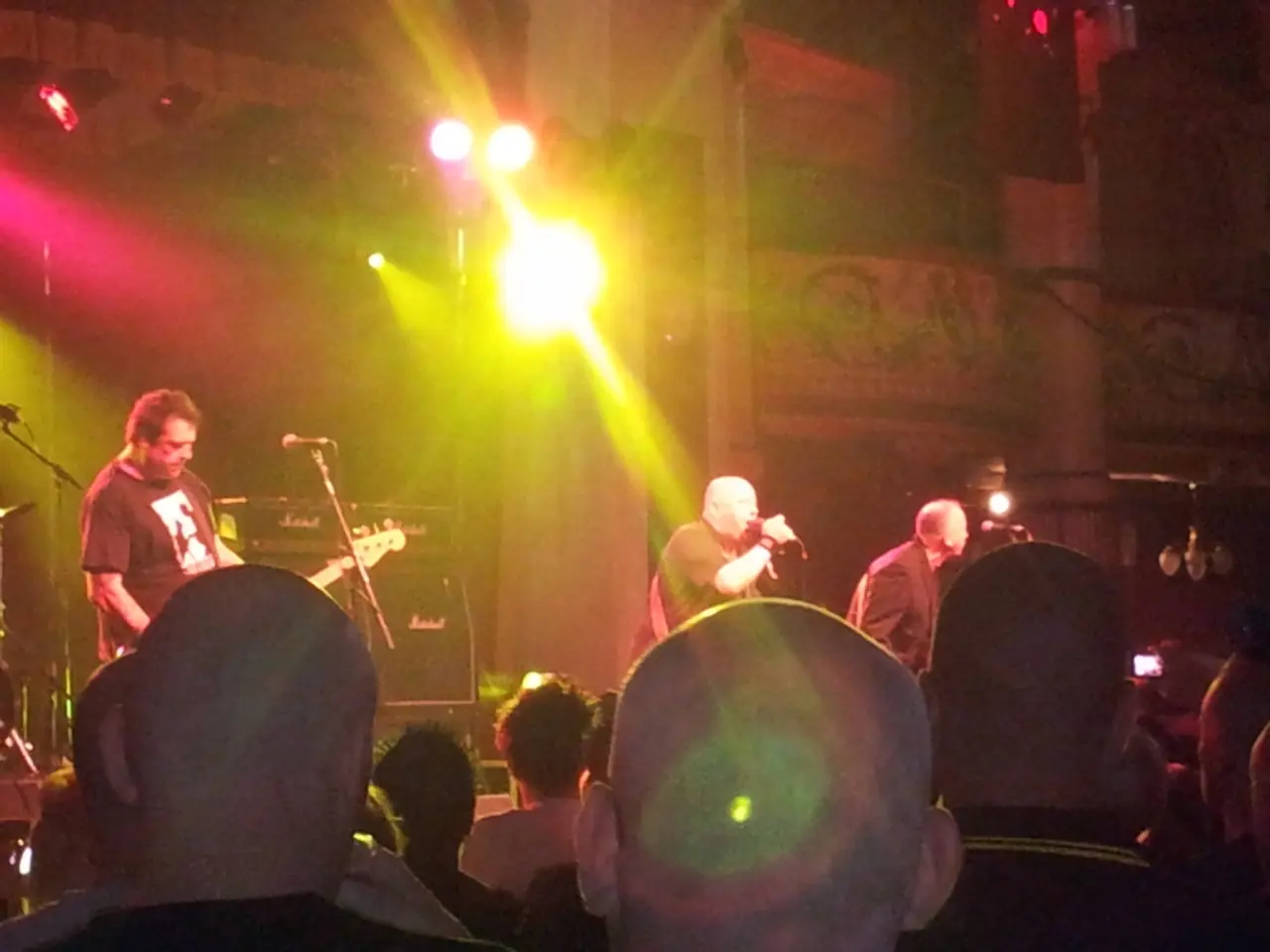Potential Consequences of Trump Deploying National Guard in Washington D.C.
In a recent turn of events, President Trump has expressed interest in increasing the federal law enforcement presence in Washington D.C. However, it's important to clarify that he cannot unilaterally federalize the district or take permanent control of the D.C. Police Department.
The federal law enforcement presence includes US Capitol Police, FBI, US Marshals Service, DC Police, DEA, and other agencies. Under normal circumstances, the DC National Guard reports only to the president, unlike their counterparts in other states. Yet, it's unclear if the National Guard is a part of the recent mobilization.
The city's status as a district, not a state, allows the president, and in turn the federal government, more leeway in directing troops and a range of federal authorities. However, any national authorities in DC would have the same limits on their authority as they would anywhere else.
President Trump invoked Section 740 of the Home Rule Act, which allows the president to take temporary control of the Metropolitan Police Department (MPD) for federal purposes up to 30 days during a special emergency. This limited authority has never been used before and does not equate to full federalization or permanent control.
Despite Trump's repeated claims of increased crime in DC, 2025 crime numbers are lower than last year's, according to a preliminary year-to-date crime comparison from DC Police. The idea of federal troops patrolling DC could invoke memories of 2020, when Trump called in federal authorities to respond to protests stemming from the police killing of George Floyd.
It's crucial to note that any long-term federal control or takeover of D.C.'s government and police force requires Congressional approval. Experts say Trump cannot unilaterally federalize DC. Claire Finkelstein, a professor at the University of Pennsylvania, recommends that the National Guard should stay away from law enforcement duties and leave them to the police.
In conclusion, while President Trump can temporarily control the MPD under specific circumstances, he cannot unilaterally federalize Washington, D.C. or take permanent control of the D.C. Police Department without Congressional approval. The background principle in the United States is to have laws enforced by civilians, police, and at the local level, making any large-scale federal intervention "against the grain" of American norms.
| Action | Authority | Duration / Note | |----------------------------------|----------------------------------|----------------------------------------| | Permanent federalization of D.C. | Requires an act of Congress | Not achievable by the president alone | | Temporary control of MPD | Section 740 of Home Rule Act | Up to 30 days, during declared emergency | | Deployment of National Guard | President can deploy in emergencies| Part of temporary federal response |
- The ongoing discussions around President Trump's plan for increased federal law enforcement presence in Washington D.C. also involve the question of permanent policy-and-legislation changes, as any long-term federal control or takeover of D.C.'s government and police force requires Congressional approval.
- In the context of war-and-conflicts, crime-and-justice, and political controversies, the role of federal authorities in Washington D.C. is subject to various restrictions, with temporary control under specific circumstances (such as Section 740 of the Home Rule Act) being the limit for President Trump, while the background principle in the United States is to have laws enforced by civilians, police, and at the local level, making any large-scale federal intervention "against the grain" of American norms.
